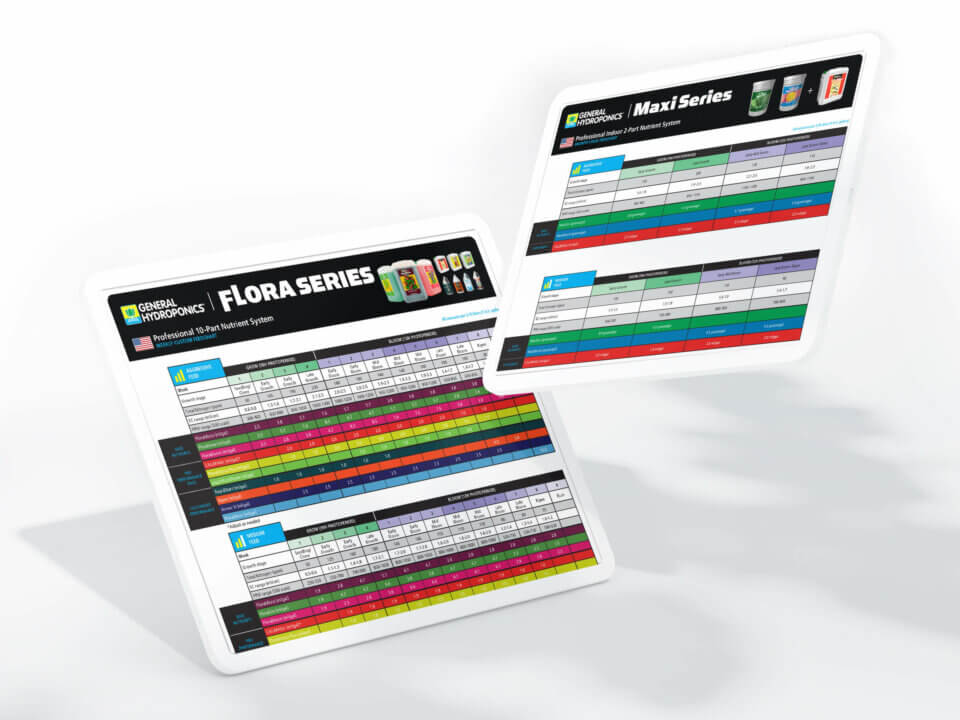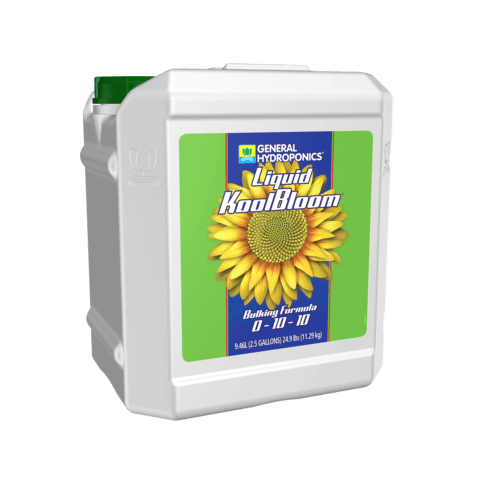pH 4.01 Calibration Solution
Standard Reference Solution General HydroponicsGeneral Hydroponics uses the highest-quality reference solutions, allowing growers to calibrate many popular brands of PH, EC and TDS meters (NaCl scale or the 442 scale). General Hydroponics technicians check each batch to ensure that our solutions are precisely calibrated and yield reliable readings each time they are used.
General Hydroponics uses the highest quality electronic meter reference solutions
Growers can use our reference solutions widely among many popular brands of meters using the NaCl scale
General Hydroponics technicians check each batch to ensure that our solutions are exactly calibrated each time they are used
For use with
Plants
- Hemp
- Vegetables
- Herbs
- Fruits
- Flowers
- Other high value crops
Media
- Rockwool
- Potting mix
- Coco
- Peat lite mix
- In-ground soil
- Water culture
Guaranteed analysis

Grow like a pro
Explore the most comprehensive offering of commercial growing solutions tailored to support your entire operation end-to-end and get the greatest possible returns while staying one step ahead of the competition.
Getting started
Learn from the best
FAQs
- What is pH?
- Can you explain pH in a little more detail?
- What pH is best for growing plants hydroponically?
- How does pH level affect plant growth?
- How do you change the pH?
- How often should I check my pH level?
- How much pH Up/Down is needed per gallon?
- The pH in my system drops below 4 every few days after cleaning and refilling. How do I increase the pH and stabilize it?
-
pH is the measure of acidity/alkalinity of a solution.
-
pH is a measure of the hydronium ion H3O+. It is based on a logarithmic scale from 0 to 14. “Pure” water has a pH of 7.0. If the pH is less than 7, the solution is acid. If the pH is greater than 7 it is alkaline. Because the scale is logarithmic and not linear, a pH of 6 indicates ten times more H protons than a pH of 7, and a pH of 5 indicates 10 times more protons than a pH of 6.
-
The ideal pH range for most hydroponic crops is between 5.5 and 6.5.
-
pH is important because it affects availability and absorption of several of the 16 atomic elements needed for plant growth. Maximum absorption of these elements is found at pH readings 5.5 to 6.5. When pH falls below this range many of the macro elements (N, P, K) have less availability, and absorption of the micro nutrients can reach toxic levels.
-
pH is adjusted by using an acid to lower it or a base to raise it. General Hydroponics® pH Down and pH Up are designed for this purpose. Many acids and bases are extremely corrosive and dangerous, so care should be used.
-
When first starting out it is a good idea to measure the pH of your water every day, until you get a feel for your system. Measure your water and then add your nutrients. Within an hour check the pH and adjust accordingly. Repeat this process until pH stabilizes. The liquid nutrient FloraSeries® has special pH buffers to help maintain a desirable pH. It is a good idea to note how much water, nutrients and pH modifiers are needed to obtain the desired values. After several “start- ups” you can generally get a feel for how much acid or base to use for your situation. Frequently pH stays within a desirable range for a considerable time, and then rapidly rises or falls to an extreme. This is usually an indication of the need to do a nutrient change. If you are using hard water, pH has the tendency to climb above 7.5. Sometimes this can be neutralized with acid, though one might consider diluting with filtered water, or adding a reverse osmosis unit in an extreme case.
-
Start out with one milliliter per gallon. Wait 15 To 30 minutes, and test your water again. Frequently you will only need 1 to 2 ml of pH Up/Down per gallon of water. You may need additional pH Up/Down if you have hard water. FloraSeries® is pH buffered to facilitate keeping the pH in a favorable range.
-
The easiest way is to continue adding pH Up. This is generally fine because the additional elements that are added are potassium ions. Potassium is frequently the highest element in hydroponic nutrient solutions. Sometimes pH crashes because of the presence of a large amount of microbial activity in the nutrient solution. This is usually a result of poor maintenance of the system due to infrequent nutrient changes or other stresses. The best way to avoid this scenario is to keep a clean system with adequate nutrition.











